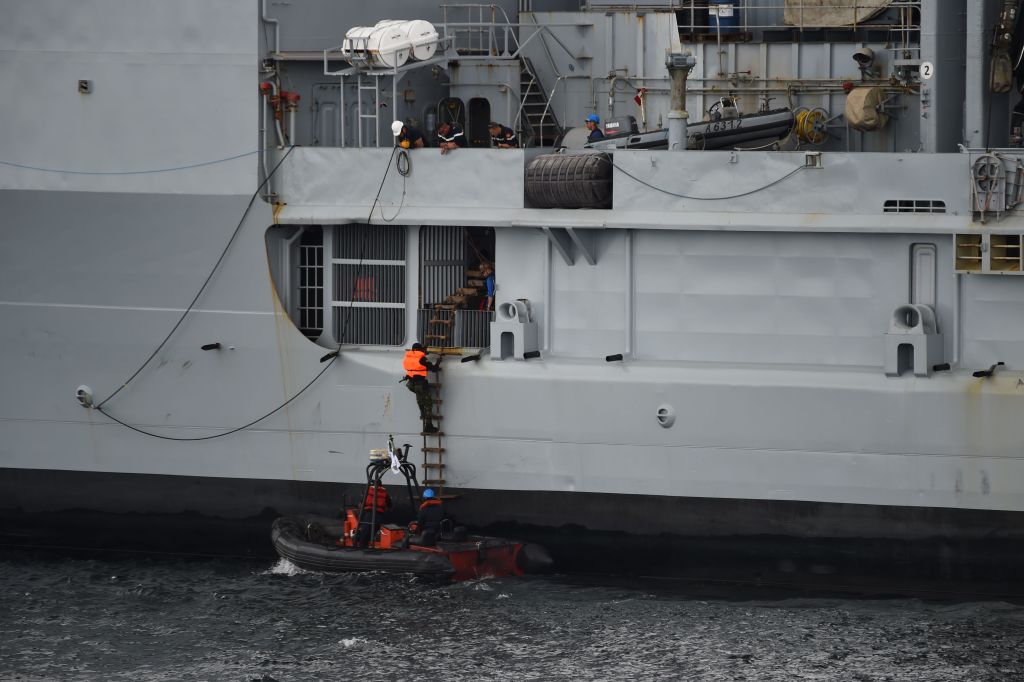ADF STAFF
Officials recorded three pirate attacks in the Gulf of Guinea over four days in late June and early July.
Crew members of a cargo ship reported that three pirates boarded their vessel in late June as it was anchored in Takoradi, Ghana. The crew sounded an alarm that scared off the pirates, but not before they had stolen goods from the ship, according to a report by The Maritime Executive.
Pirates attacked a cargo ship on the Wouri River, near Douala, Cameroon in early July. The river has an estuary on the Atlantic Ocean. Pirates abducted six crew members during the attack.
The same day, armed pirates in speedboats attacked two fishing vessels on the Wouri River, according to a report by the EOS Risk Group, which does global corporate security risk and crisis management work.
A pair of pirate attacks on vessels in the Gulf of Guinea in late March and early April prompted the Nigerian Navy to announce that it will continue to maintain a maritime security presence in the region.
The first incident occurred off the coast of the Republic of the Congo, in which criminals abducted six crew members and destroyed navigational and communication equipment.
The second incident involved an attack on an oil tanker off the coast of Côte d’Ivoire less than two weeks later. The hijackers stole cargo and took crew members’ belongings before fleeing, according to a report by Crisis 24.
After years of declining pirate attacks — there were 81 in 2020, 34 in 2021 and just three last year — the threat is resurging in the region.
Officials reported five incidents in the first quarter of this year and nine in the second quarter, according to the International Chamber of Commerce’s International Maritime Bureau. The incidents involved the kidnappings of 45 crew members while attackers also destroyed communications and navigation equipment and stole cargo.
“We once again call on the Gulf of Guinea regional authorities and the international community to refocus their attention on the region, to establish long-term, sustainable solutions that effectively address these crimes and protect the seafaring and fishing communities,” bureau Director Michael Howlett said.
The cause for the recent upsurge in piracy is not clear. As late as November 2022, reports indicated that criminal networks might have shifted from piracy to oil theft. Maritime criminals are known to adjust their tactics to “meet shifting economic conditions,” according to the Organized Crime and Corruption Reporting Project. However, by July 2023, reports indicated that there had been a shift back toward piracy and away from oil theft.
Widespread poverty and poor public services, combined with rampant illegal fishing by foreign trawlers, all drive pirate attacks in the region, according to the United Nations.
“Pirate groups are adapting to changing dynamics both at sea and in coastal areas,” Martha Pobee, the U.N.’s assistant secretary-general for Africa, told the U.N. Security Council in November 2022.
Pobee said there was “no firm evidence” to suggest links between terrorist and pirate groups.
“However, addressing the underlying social, economic, and environmental challenges faced by communities in the region will ultimately serve to contain both threats,” Pobee said in a U.N. report. She added that the U.N. is working with international financial institutions to address the threat’s underlying causes.
In late July, Sierra Leonean authorities reported that a Chinese fishing vessel was overcome by pirates in its waters. The attackers sailed the vessel toward Liberia, but the ship was freed the next day and Liberian forces caught some of the attackers.
“We are looking at how to curb the menace in the region,” Sierra Leone’s Navy Chief Commodore Philip Juana told The Associated Press. Sierra Leonean officials will engage with counterparts in Liberia on future “operational strategy” against piracy, Juana added.

